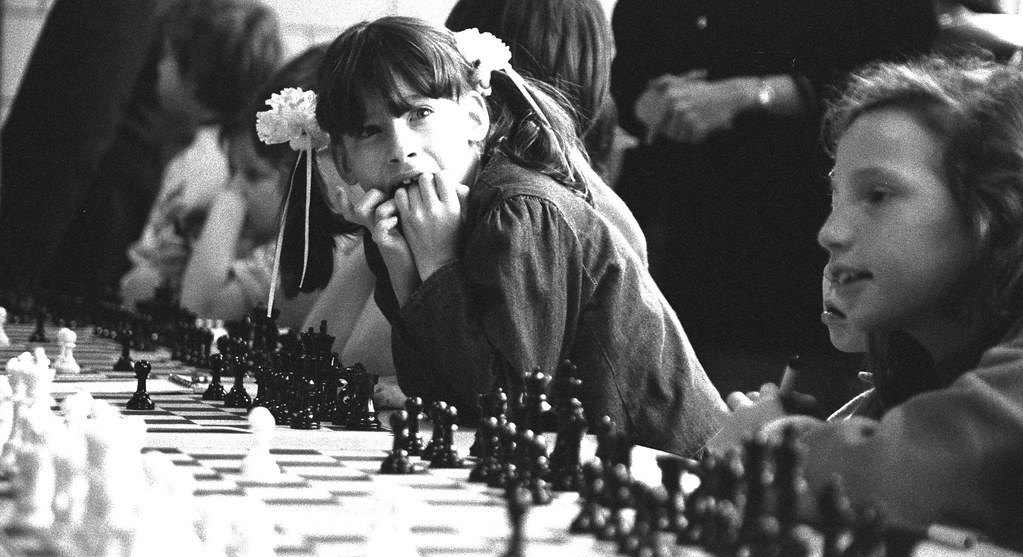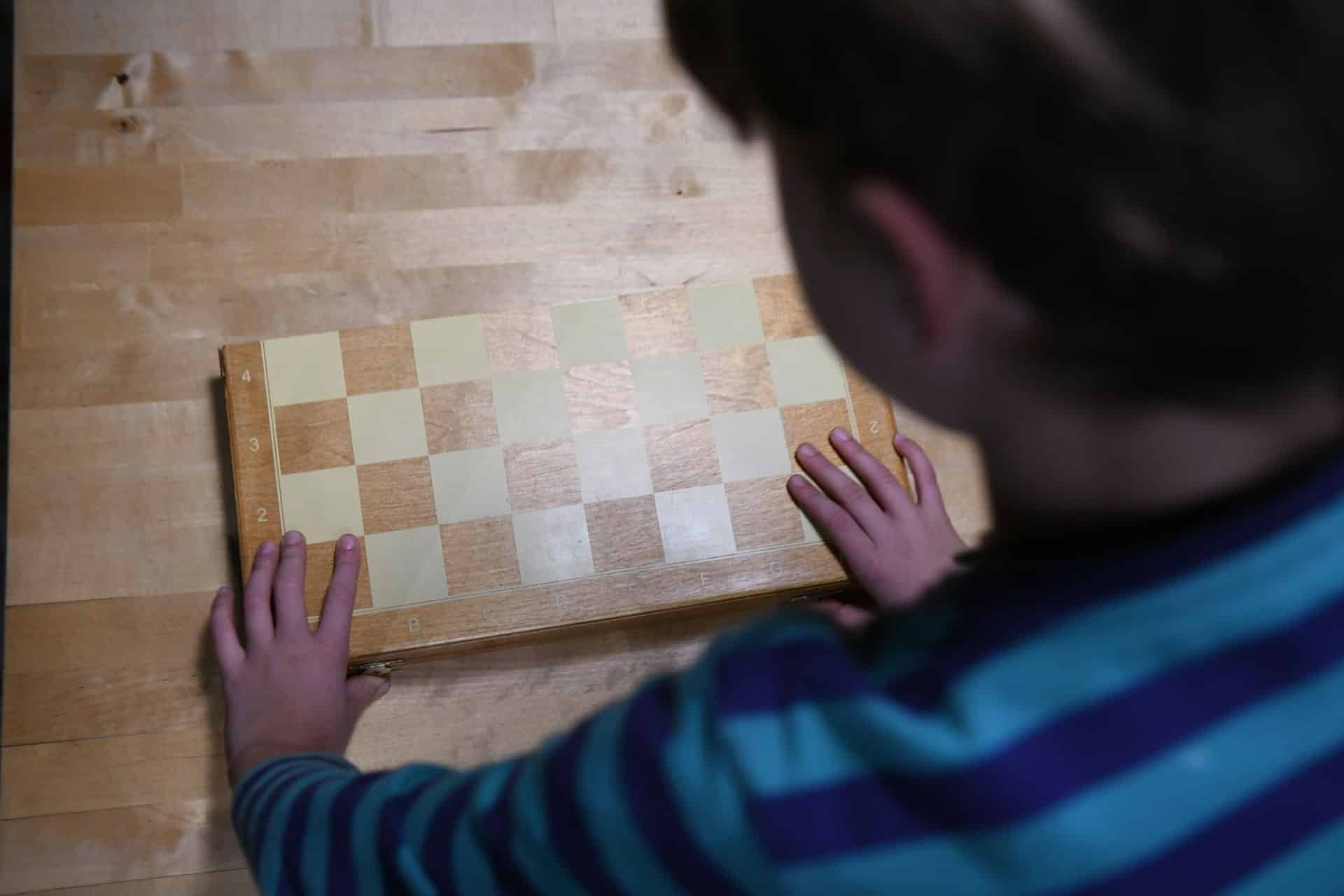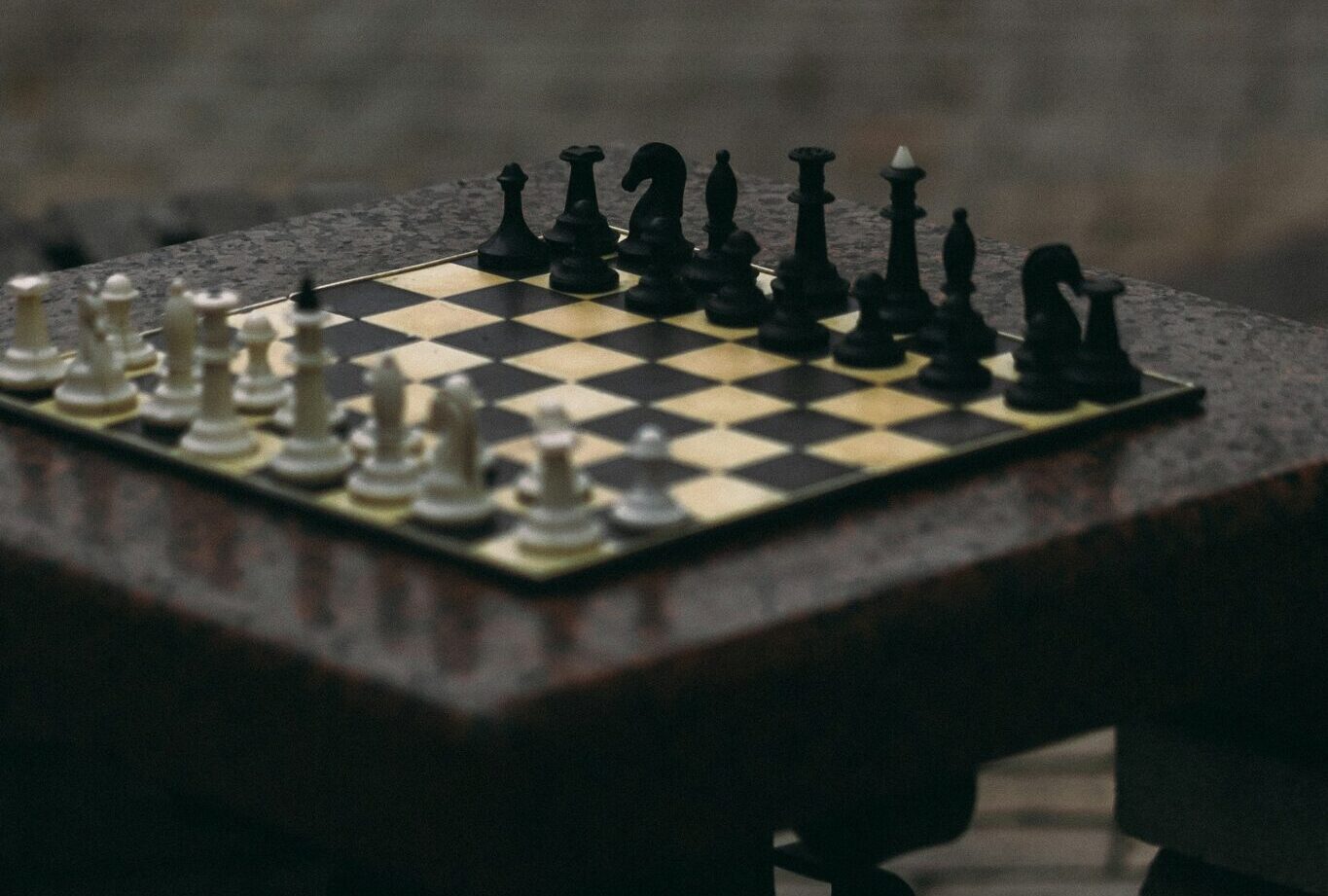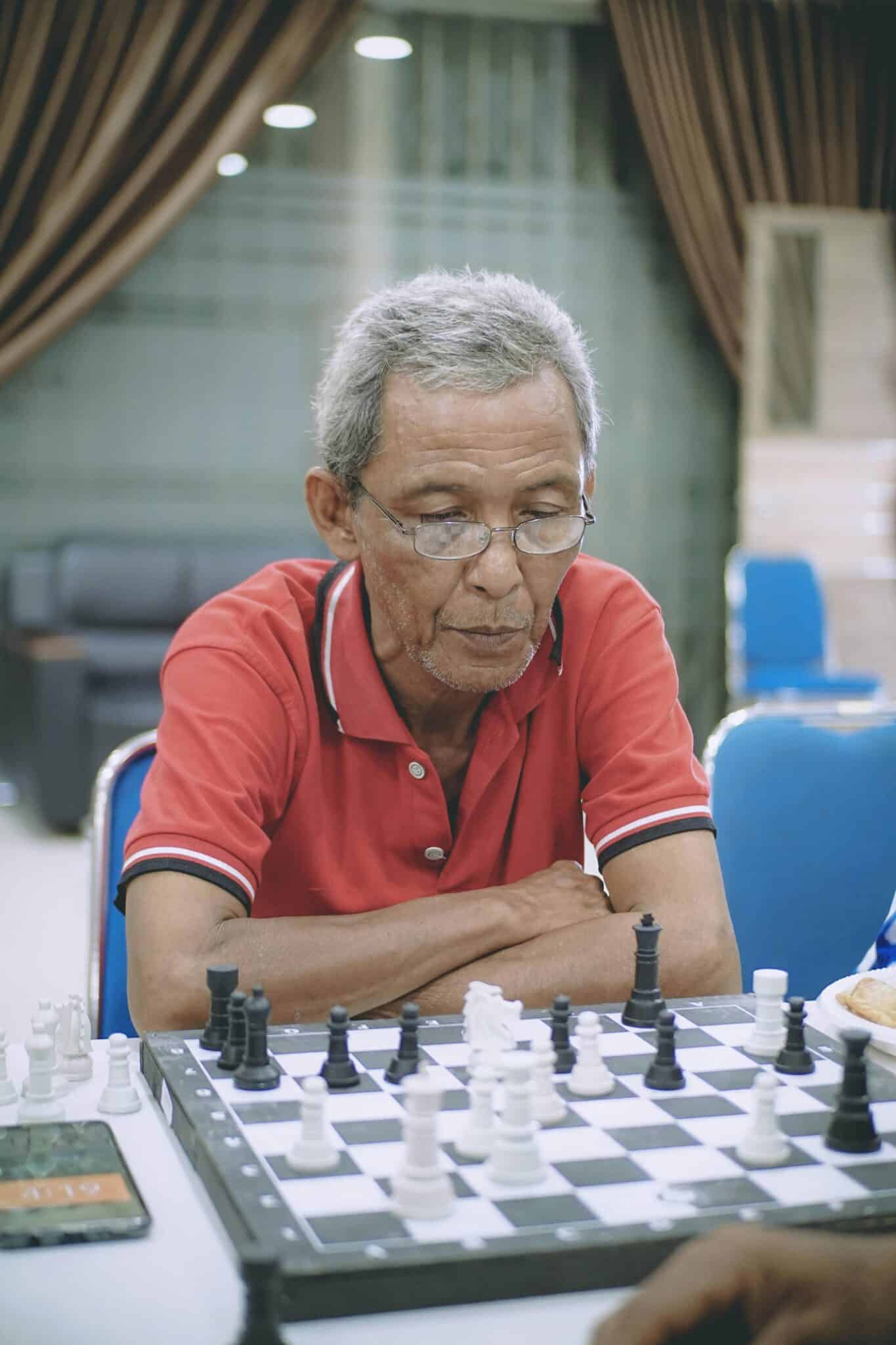Table of Contents
What chess level is my child?
Parents usually worry too much about their kids’ improvement and development in chess. As a chess coach, I have seen this so many times, people asking around “what chess level is my child?”.
There are certain ways to determine the chess level of a special someone. However, people give too much importance to this matter, being something not really imperative.
I have seen many parents “worrying” about the children’s progress, and sometimes they look even more worried than the kids. We have to understand what is important about learning chess when you are young is having fun, as any activity.
Most of the time by “worrying” too much about this matter can put a lot of pressure on the children. It’s funny, because this instead of making them improve, will negatively affect their play.
Not because you teach your child how to play chess he is predestinated to be a professional chess player, nevertheless, many parents give that approach.
Inscribing your child in a chess club at the age of 7 hoping he becomes a professional chess player doesn’t make sense. It’s like showing you a tutorial on how to fry potatoes hoping you would work in a restaurant, nonsense!
I hope, this is not the reason why you are here today my friend, and if it is so I’m sorry for disappointing you. We will explain everything you need to know as a parent to motivate your kids to improve their chess, in a healthy way.
How to determine your child’s chess level?
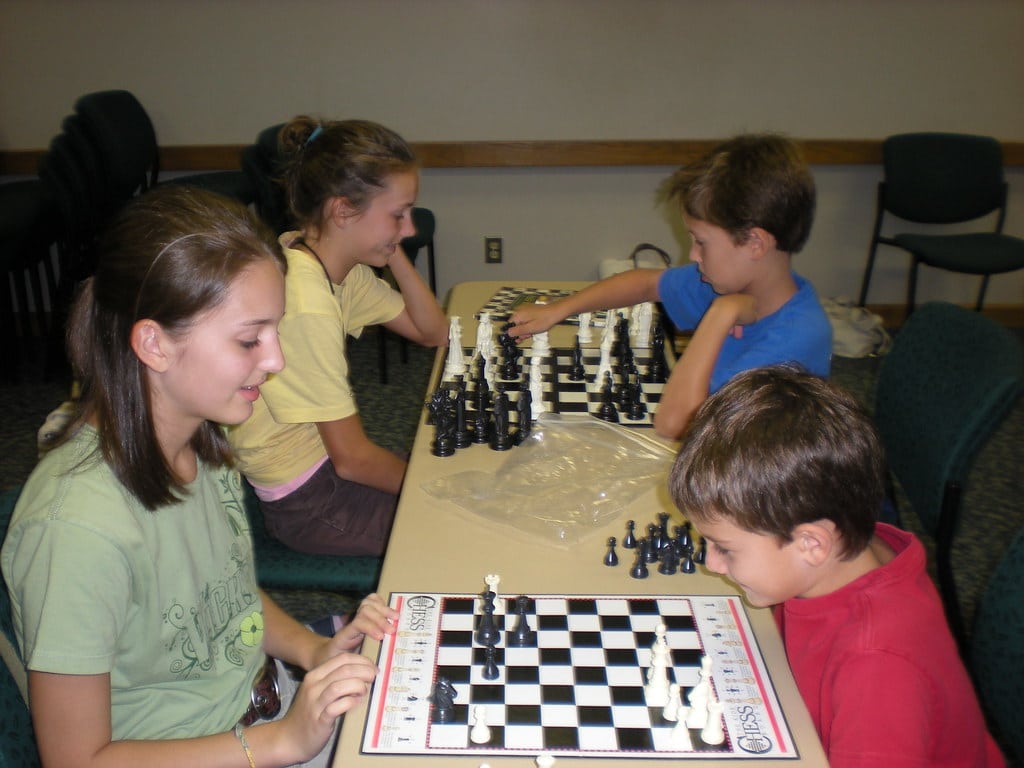
There is a simple thing you can do, and it sounds obvious but we’ll explain in detail, get him into tournaments. Make your child test himself, he will also love the idea of participating in a tournament, in most cases.
Playing against another player similar to his level will give you, and not only you but him, a good idea of his level. Actually, it’s simple, because FIDE (the international chess federation) has already invented a way to determine a players’ level.
This is the only real and numerical way to know the answer to “what chess level is my child?”. FIDE rating is a number that increases or decreases depending on the games you win or lose.
This takes into consideration a lot of factors, and you can actually find a lot of details of your children’s performance in a tournament. A common practice is to go with a coach and ask him to analyze the games of the child, and he can give you an idea.
Is pretty common in children to realize they don’t actually have the “level” they expected. As a parent you need to give your kids support and motivate them to grow, everyone can always improve.
This is why ELO rating is actually relative, it has its importance, and gives a glance at the players’ level, but is not definitive.
How to test and find out what chess level is my child
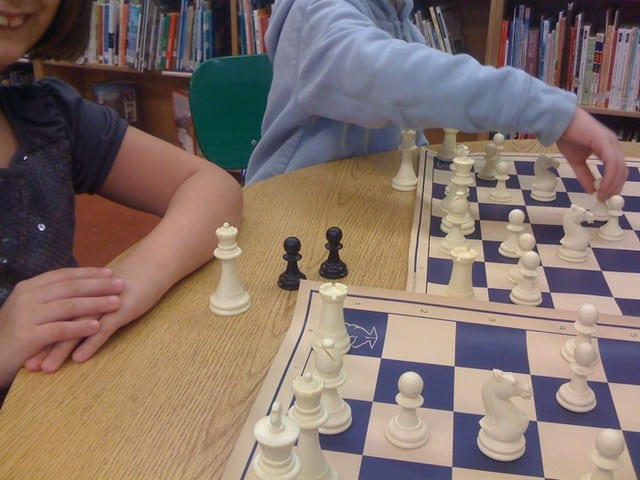
There are many ways you can do that, and actually, if you have your kid in a chess club or academy, they can take care of this part. Yet, if you are looking up what chess level is my child on google I’ll suppose your kid is not in a club yet.
In this case, the best answer is on the internet, there are many web pages offering free content which you can use. You can also download chess books in PDFs which usually have good exercises.
There are books with strategy and tactics exercises that will be very beneficial. The key is in always motivating your child telling him he is good, but it can be better.
Take it easy, this is not as important as many people think, the best part of learning is the process.
Chess online sites and forums have treated this matter a lot, this is a frequently asked question “what chess level is my child”. A lot has been written on the topic, sites like chess.com or chess24 will surely help you know better.
Is my child improving well in chess?
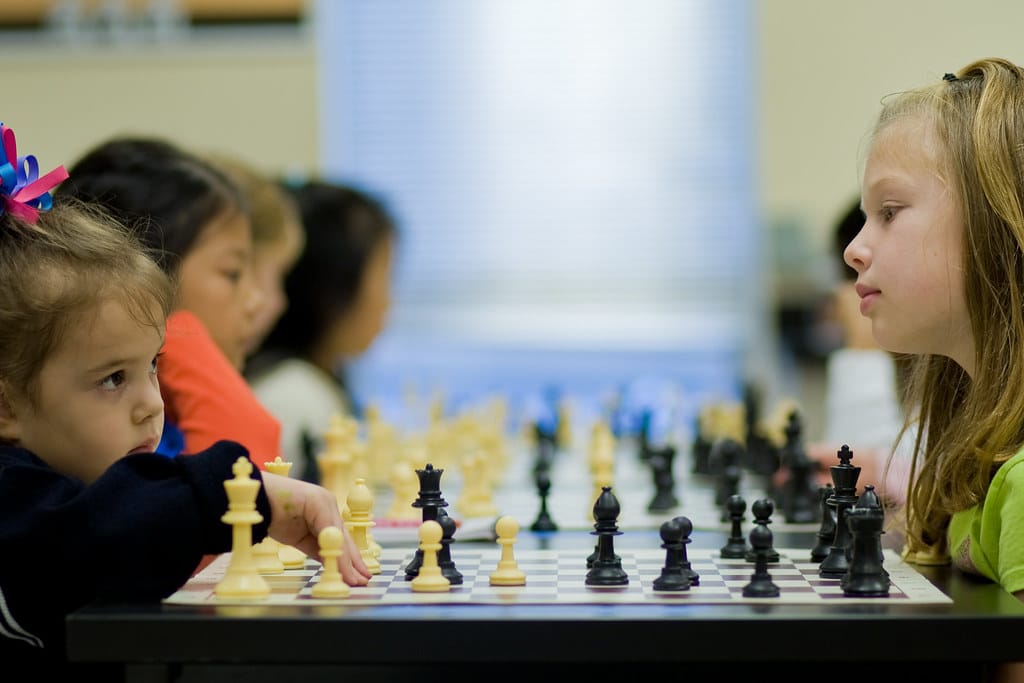
In the learning process, you have to definitely be patient, the process is slow, you can’t have it all once for all! Most chess grandmasters take years to achieve their titles, years of consistency, and discipline.
This is a pretty competitive frame and is not easy to have progress, chess is an art. This is the reason why, you have to feel comfortable with the level you have, be patient, enjoy the process and the game itself.
I have seen many good players with little patient grow over time, and they end up pushing themselves too hard. Sometimes more is not better, players tend to spend many hours in front of the board.
Playing chess is exhausting, when you realize study more is not the solution, you will feel a lot better about the process, you don’t want to frustrate your kids!
The chess rating relativity on what chess level is my child
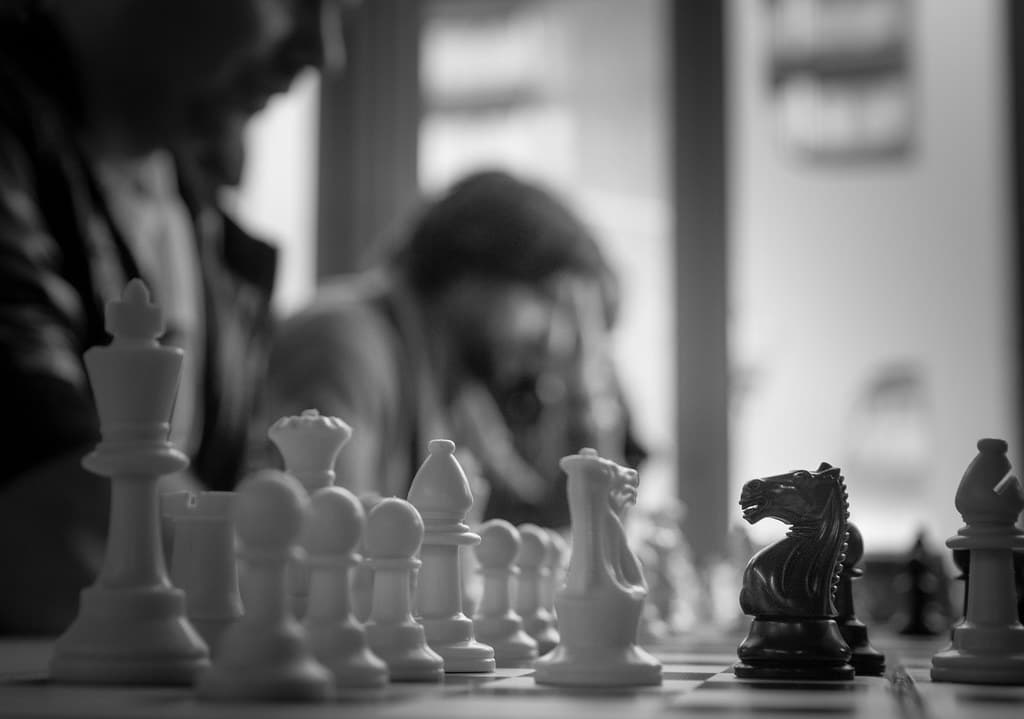
Having a high or low chess level is relative, I want to emphasize this because many players (including myself young) fall into the trap.
If you start to attach your worth as a chess level to the ELO rating, every time you lose you will feel like the worst player in the world. And, of course, if you win a game you will feel like you are the world champion.
Neither extreme is good for chess improvement, and having this vision will lead you to frustration, and eventually abandoning chess.
This is not a realistic vision, and not a good way to respond to “what chess level is my child” either. The “chess level” of your child is not determined by the rating, the rating is only an approximation based in FIDE-approved tournaments.
Remember, 80% of your “chess level” is determined by you, you have the decision and power to take the right decision.
You may also like:
Master the Chess Sacrifice to Become a Tactical Monster!
Find Awesome Chess Clubs Near You Easily to Play Chess in a Friendly Environment

